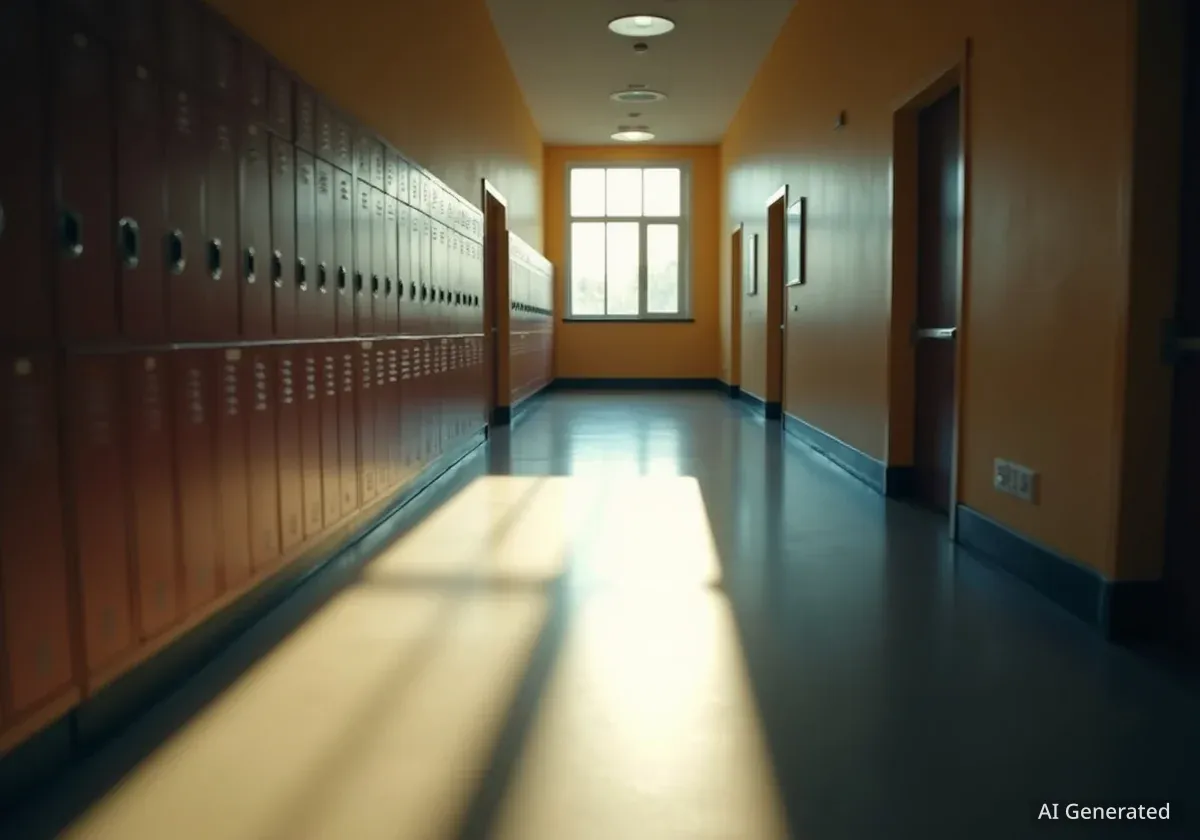The Winston-Salem/Forsyth County Schools district is contemplating the closure of additional schools as it grapples with a $37 million debt and a significant decline in student enrollment. Interim Superintendent Catty Moore announced she will formally ask the school board in November to explore this option to address the financial challenges.
Key Takeaways
- Winston-Salem/Forsyth County Schools faces a $37 million debt and declining student numbers.
- Interim Superintendent Catty Moore will propose considering more school closures to the school board in November.
- Cook Elementary School is already under review for closure, with a public hearing scheduled for October 14.
- Student enrollment has dropped by over 5,000 since the 2018-19 school year.
- A separate school rezoning initiative has been paused pending decisions on school consolidation.
Financial Strain Drives Consolidation Talks
The school district's financial situation has become a primary driver for considering drastic measures. With a debt of $37 million, officials are seeking ways to reduce operational costs and improve efficiency. The proposal to close schools is a direct response to this pressure.
Interim Superintendent Catty Moore addressed local legislative officials on Monday, stating her intention to bring the issue of school closures before the Board of Education. While she did not specify which schools might be considered, she indicated that facilities with chronic under-enrollment or those requiring costly renovations would be evaluated.
Enrollment Decline in Detail
The drop in student population is a key factor. The district's unofficial 10-day enrollment for the current school year was 49,244 students. This represents a substantial decrease from the 54,480 students enrolled during the 2018-19 school year, a loss of more than 5,200 students in just a few years.
Projections shared with the school board in 2024 painted a concerning picture for the future, estimating a potential for 5,700 empty seats in elementary schools alone by the 2031-32 school year. This trend is attributed to several factors, including the rise of charter schools, private education, homeschooling, and declining birth rates.
Cook Elementary Closure on the Table
One school is already under specific review for closure. The school board is expected to vote soon on the future of Cook Elementary School, located in the Boston-Thurmond neighborhood. The facility, which has a capacity for 500 students, currently serves only 189.
Closing Cook Elementary would yield significant financial benefits for the district. Officials estimate it would save approximately $300,000 annually in operating costs and another $900,000 in non-teaching salaries. Furthermore, the closure would cancel a planned maintenance project that was slated to cost around $800,000.
A public hearing regarding the potential closure of Cook Elementary is scheduled for October 14. The school board will make a final decision following this hearing.
Other Program Consolidations Proposed
In addition to school closures, Moore presented other consolidation recommendations in August. These proposals focus on streamlining specialized programs to save on personnel costs.
- Moving the 45 ninth and tenth-grade students in Paisley’s International Baccalaureate program to the larger IB program at Parkland High School.
- Relocating students from Kennedy High School, a career and technical education magnet, to the adjacent Career Center.
In these scenarios, both Paisley and Kennedy schools would likely remain open to house other programs, but the consolidation of staff would generate savings.
Potential Savings from Closing Cook Elementary
- Operating Costs: $300,000 per year
- Non-Teaching Salaries: $900,000
- Avoided Maintenance: $800,000
Community Impact and Rezoning Plans
The prospect of closing schools has raised concerns among community leaders. During the meeting with legislators, Rep. Amber Baker emphasized the need for school officials to consider the impact these decisions will have on the Black community, where schools often serve as important local hubs.
“It’s an incredibly hard decision. Our schools are an economic engine in our community. They are what make a place a great place to live,” Moore acknowledged in response.
However, she also noted that keeping inefficient or financially draining schools open can ultimately harm a community. Moore, who joined the district in June, mentioned being struck by the deep-rooted connections residents have with their local schools.
School Rezoning Initiative on Hold
A separate but related initiative to redraw school boundary lines, known as Fostering Diverse Schools, has been paused. The project, funded by a federal grant, aimed to increase socio-economic diversity. However, preliminary maps released last winter received negative feedback from some community members.
Sen. Dana Caudill Jones suggested that the discussion around rezoning may have prompted some families to leave the district. Moore clarified that the rezoning effort is now more focused on improving transportation efficiency. She explained that it is logical to pause boundary changes until decisions about school closures are made.
“That work is not tabled, but it’s sitting there,” Moore said. “It needs to run alongside the conversation on consolidation. They have to work together.” She added that any changes, initially planned for the 2026-27 school year, are now more likely to be implemented in 2027-28.





